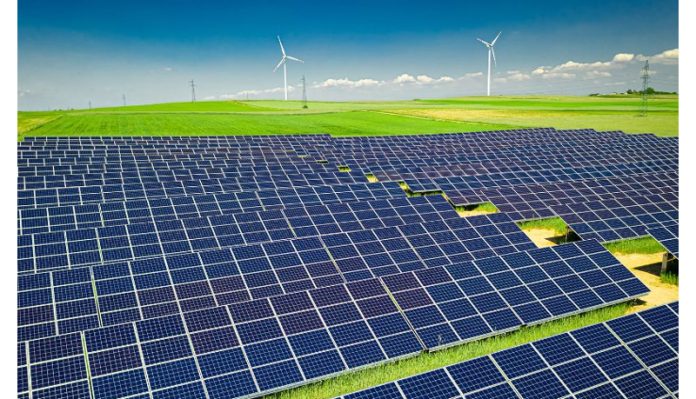Hydropower has overwhelmingly dominated renewable energy (RE) generation in Jammu and Kashmir over the past five years, while solar energy has contributed minimally, and other sources such as wind, biomass, and bagasse have remained absent.
This became apparent today when the Minister of New and Renewable Energy (MNRE), Shripad Yesso Naik, released the data on RE generation in India in response to a query from MP Rajesh Ranjan in Lok Sabha.
The data revealed that in the 2019-20 fiscal year, J&K generated a total of 18,537.25 Million Units (MU) of renewable energy, with 443.13 MU from small hydro projects and 18,094.12 MU from large hydro projects. However, there was no recorded generation from solar, wind, biomass, or bagasse. The following year, renewable energy generation dropped slightly to 17,441.97 MU, including 429.88 MU from small hydro and 17,002.68 MU from large hydro, while solar contributed just 9.42 MU.
The trend continued into 2021-22, with a total of 17,489.83 MU of renewable energy generated, including 414.10 MU from small hydro and 17,074.02 MU from large hydro, and only 1.71 MU from solar. By 2022-23, total generation stood at 17,170.62 MU, with 393.20 MU from small hydro and 16,777.42 MU from large hydro, while solar and other sources contributed nothing.
In the most recent data for 2023-24, total renewable energy generation dropped further to 16,282.93 MU, with 408.69 MU from small hydro and 15,874.24 MU from large hydro, while solar, wind, and other sources once again failed to contribute.
These figures underscore that hydropower remains the primary source of renewable energy in the region, with large hydro projects consistently producing over 15,000 MU annually, while small hydro contributes at a much lower level. Solar energy showed limited activity in 2020-21 and 2021-22 but remains largely insignificant. Wind, biomass, and bagasse energy generation have not yet emerged in the region.
Nationally, renewable energy accounted for 20.69% of total energy production in 2023-24, a slight decrease from 22.51% in the previous year. The Government remains committed to scaling up renewable energy projects across the country, with a particular focus on solar and wind technologies, aiming to complement the significant contribution of hydropower in regions like J&K. The report emphasizes the need for J&K to diversify its renewable energy portfolio to unlock its full potential and ensure a more balanced and sustainable energy future.

